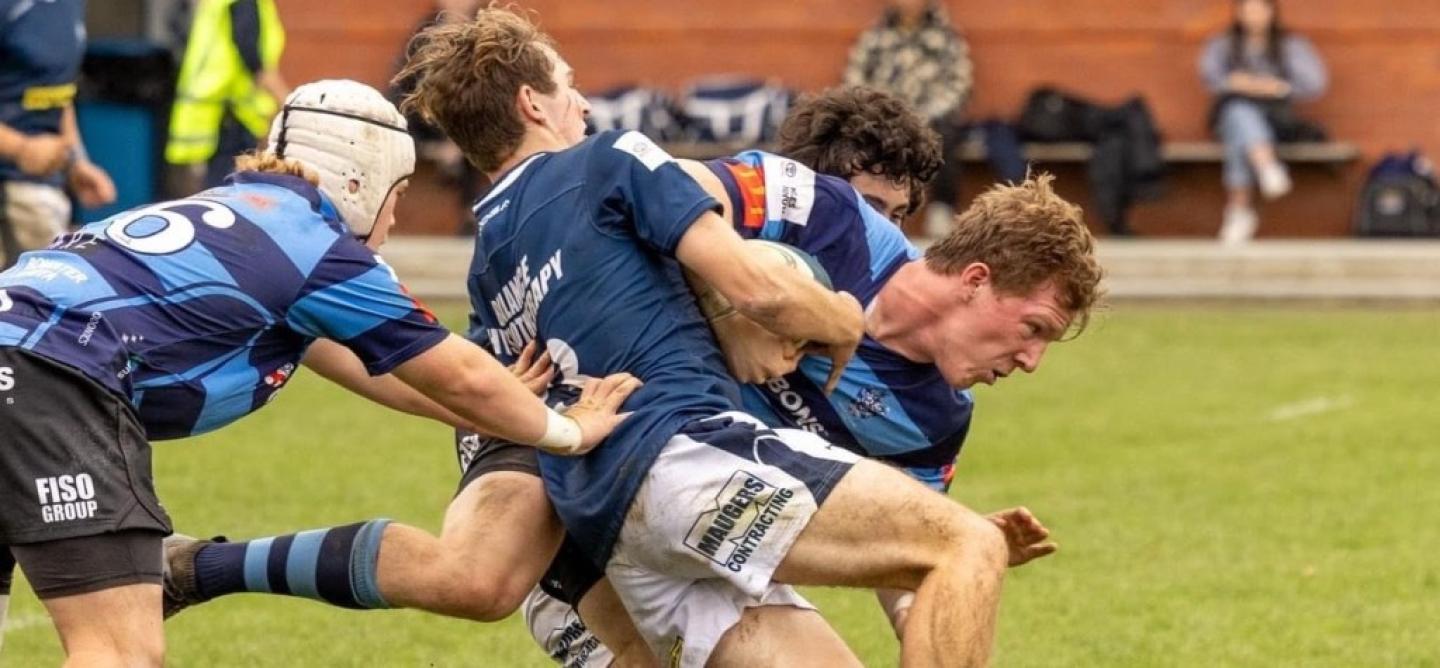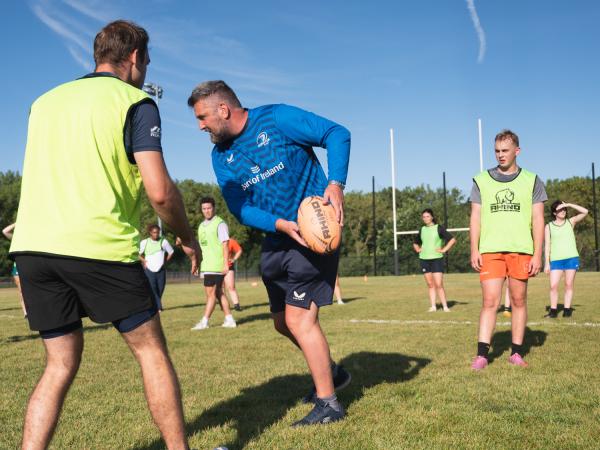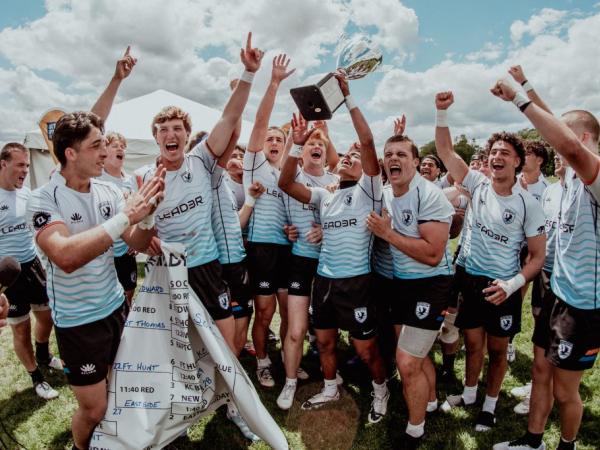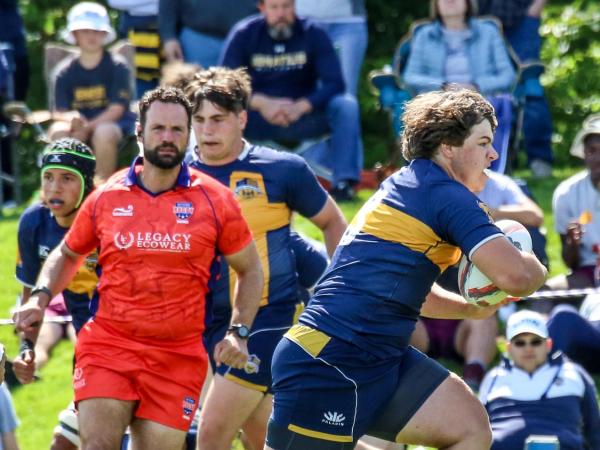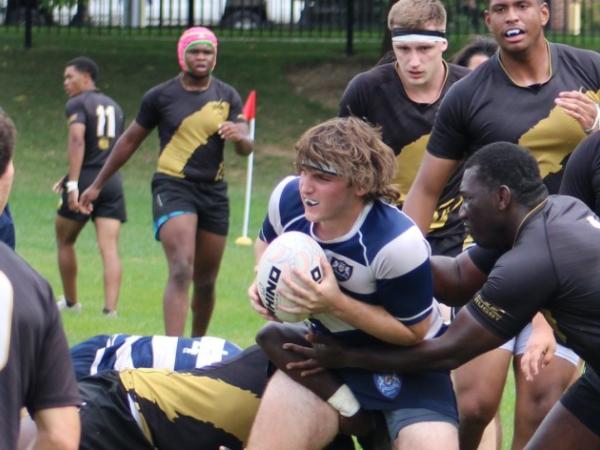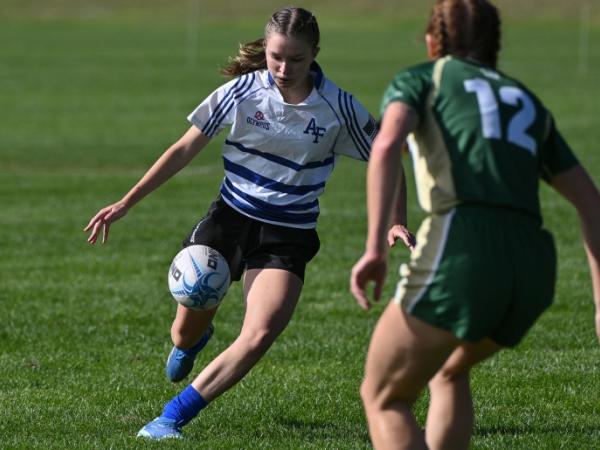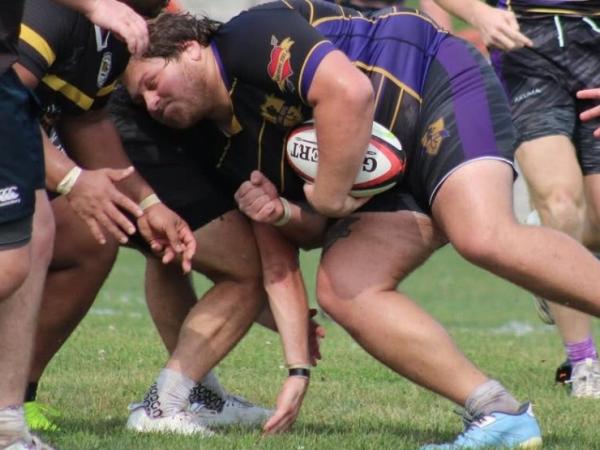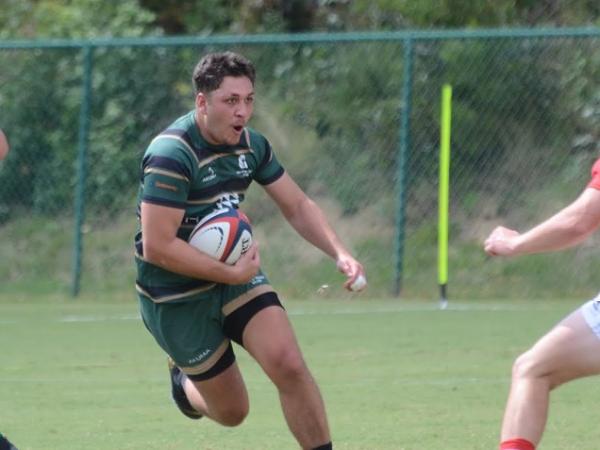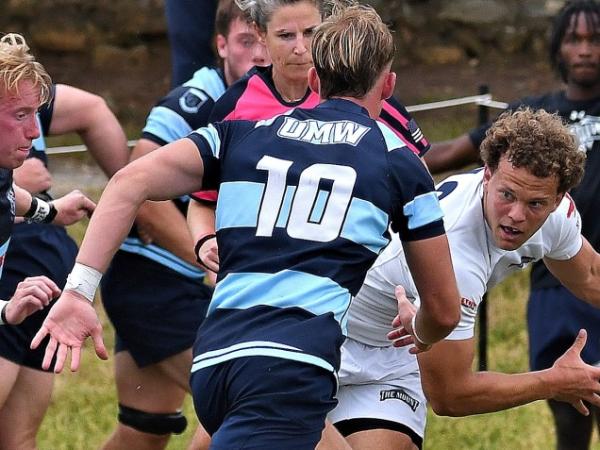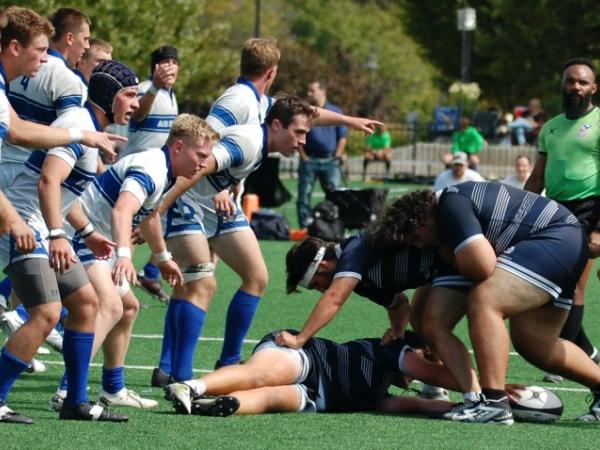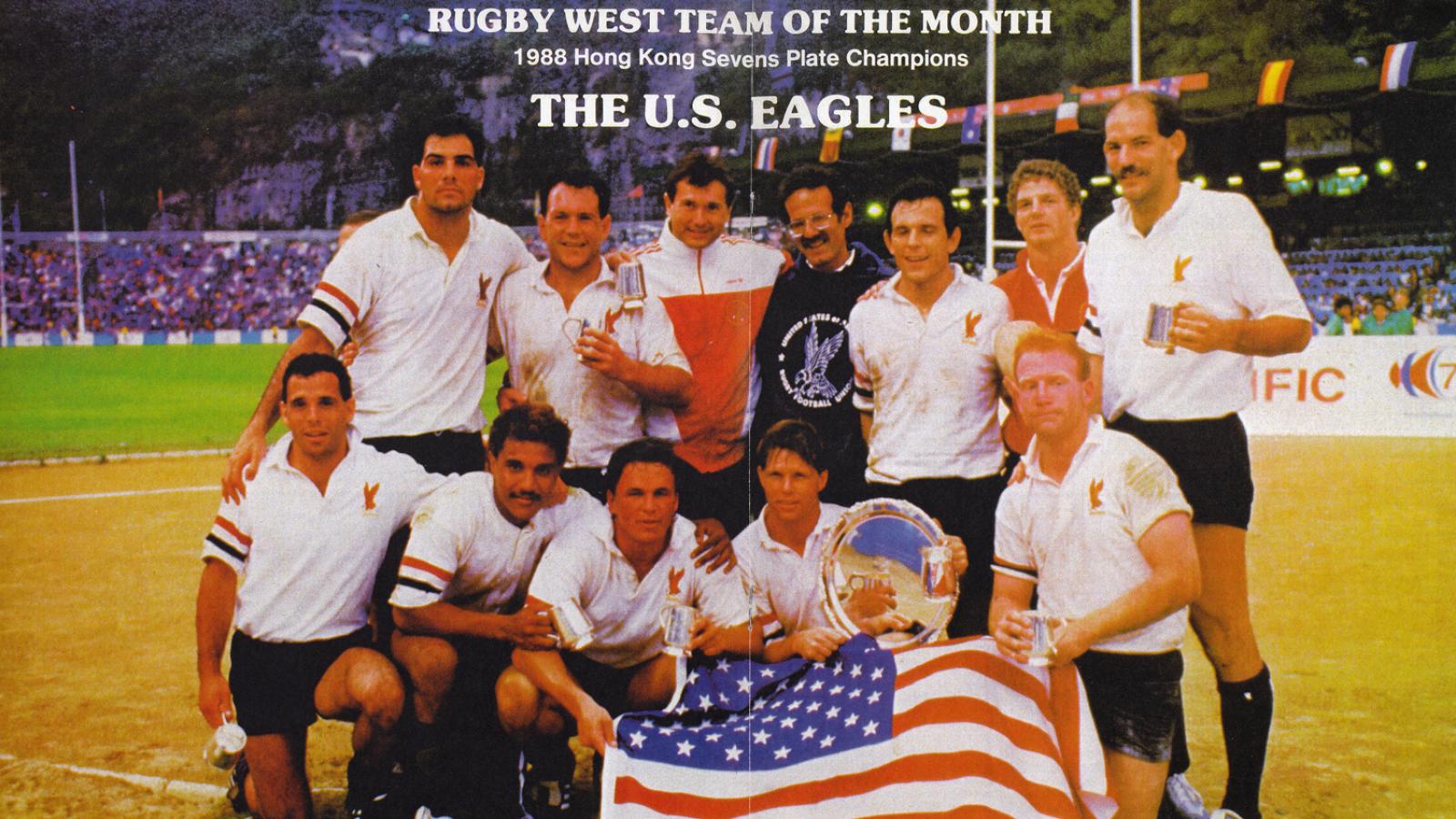Three weeks remain in the term at Nelson College in New Zealand and in a weird way it also means the end of the summer break for Oliver Kirk and Max Doerfler.
Kirk, who normally attends Walter Payton College Prep in Chicago and plays for the Chicago Lions HS team, and Doefler, who attends and plays for St. Thomas Aquinas in Overland Park, Kan., have been spending the first eight months of this year at school at Nelson College. With a scholarship provided by the US Rugby Foundation in partnership with Nelson College, the two talented young rugby players got to spend their junior years in New Zealand.
And it has been fruitful. Both were embraced by the school and their new classmates, and all this in the middle of a pretty impressive run by the school on the rugby field. This past weekend, Nelson saw their run end with a 30-26 loss in the Tasman Rugby Union final against Christchurch Boys HS. Up until then, in league play Nelson had been unbeaten.
Still, despite the loss, it’s been an impressive season for Nelson, and an unforgettable experience for the two Americans.
Open Arms
“The experience has been all I could hope for,” said Kirk, who suited up for prop for the 1st XV, normally coming off the bench for a half. “Everyone has been super welcoming, both in and out of rugby, and have made me feel like a part of the community since day one. Getting to learn about both the New Zealand culture and the cultures of many other international students in the boarding house was one of my goals.”
“I am forever grateful to the US Rugby Foundation for making this happen,” added loose forward Doerfler, who, beset by an injury early didn’t make the 1st XV but played for the 2nd team and regularly trained with the 1sts. As he said, he was “right on the edge” of playing for the 1st team, but with so many returners at flanker and No. 8, it was a difficult road to get there. “It’s been an awesome experience. For me, the education wasn’t too tough a switch. I could handle the academics. The big adjustment was living in a boarding school. There’s a culture around that which is interesting. I was living on my own for the first time, in a different country, having to do chores and keep everything up and be self-disciplined. It was like an early taste of college.”
Doefler spoke to GRR on August 5, and he was fortunate to get a visit from his parents—they were all getting ready to go to Dunedin to watch the All Blacks play Australia.
But even with those visits and constant contact with family, being 8,000 miles from home is a little different. There is one commonality, though.
“Mostly I just would hang out with the other rugby-playing boarders,” Doefler said.
That rugby family stays strong across an ocean and Kirk felt it, too.
“My teammates have made all the difference, both in my development as a player and my overall experience,” he said. “From the very start they involved me in the team dynamic and made me feel included. They helped me out, both with rugby and any other issues I had. When it came to my play, they did the exact same. At first it was walking me through our systems and teaching me the ropes of a new position. As helpful as the coaches have been, I never would’ve been able to adapt to New Zealand rugby without the help from all of them. When I did things wrong, they would let me know without being rude. When I did things right they would be excited for me. Even when not directly interacting with me, the attitude and commitment my teammates show drives me to put my best efforts in. The entire team brings great focus, leadership and comaraderie that have made my transition here as seamless as possible.”

On the Field It's Faster
It might seem a surprise to readers but the players and coaches did not assume that the Americans coming in to play were rugby ignorant. Instead, they were simply treated as new players on the team.
“My coach has been incredible,” said Doerfler. “I have learned a ton from him. They all assumed I knew how to play but I was definitely a raw player coming in. They assumed I would be a hard worker but not super-skilled and that’s what I was. I am still a little been new to the game, this is my third season, and they have been playing since they were born. But I do think my skills improved and the game’s slowed down for me a lot more.”
Kirk found himself moved to prop.
“Playing in a position that’s new to me, I’ve had to adjust my game to better carry out the responsibilities of a prop,” he said. “In a more general sense, though, I’ve had to bring a level of intensity and effort to both practice and off the field work—film sessions, weight training, recovery—that I wasn’t used to. Everyone is on the field warming up well before practice starts. It definitely took me a few sessions to learn to be so mentally switched on all the time.”
Interview with max Doerfler. Junior lock with Saints Rugby who has Recently received the Nelson College Scholarship @GoAquinasSaintspic.twitter.com/FnMEEQzm4V
— Saints Rugby (@stasaintsrugby) January 20, 2023
Both players talked about the speed of play in New Zealand. It’s why these types of scholarships are so valuable. You don’t know what fast play is until you play it.
“It’s just faster,” said Kirk. “Without a doubt that’s the biggest difference I’ve noticed. Balls just shoot out of rucks at lightning speed. The speed of play being higher makes the game feel a lot more fluid and dynamic. This together with some more complex attacking structures than I’ve experienced before make it feel like the ball flies around the field. Beyond that, players tend to play with an intelligence that comes from having years of experience in the sport before they even get to high school. It makes for exciting matches.
“The game’s much faster [than in the US],” added Doerfler. “They just do different things. There was a different system, too and I had to learn the that. The kicking game’s a lot more advanced and the passing is not only a lot faster, there’s more of it. They tell us you want to offload five times before you go to ground. It’s a refreshing way to play.”
To accomplish all of that your skills have to be strong.





